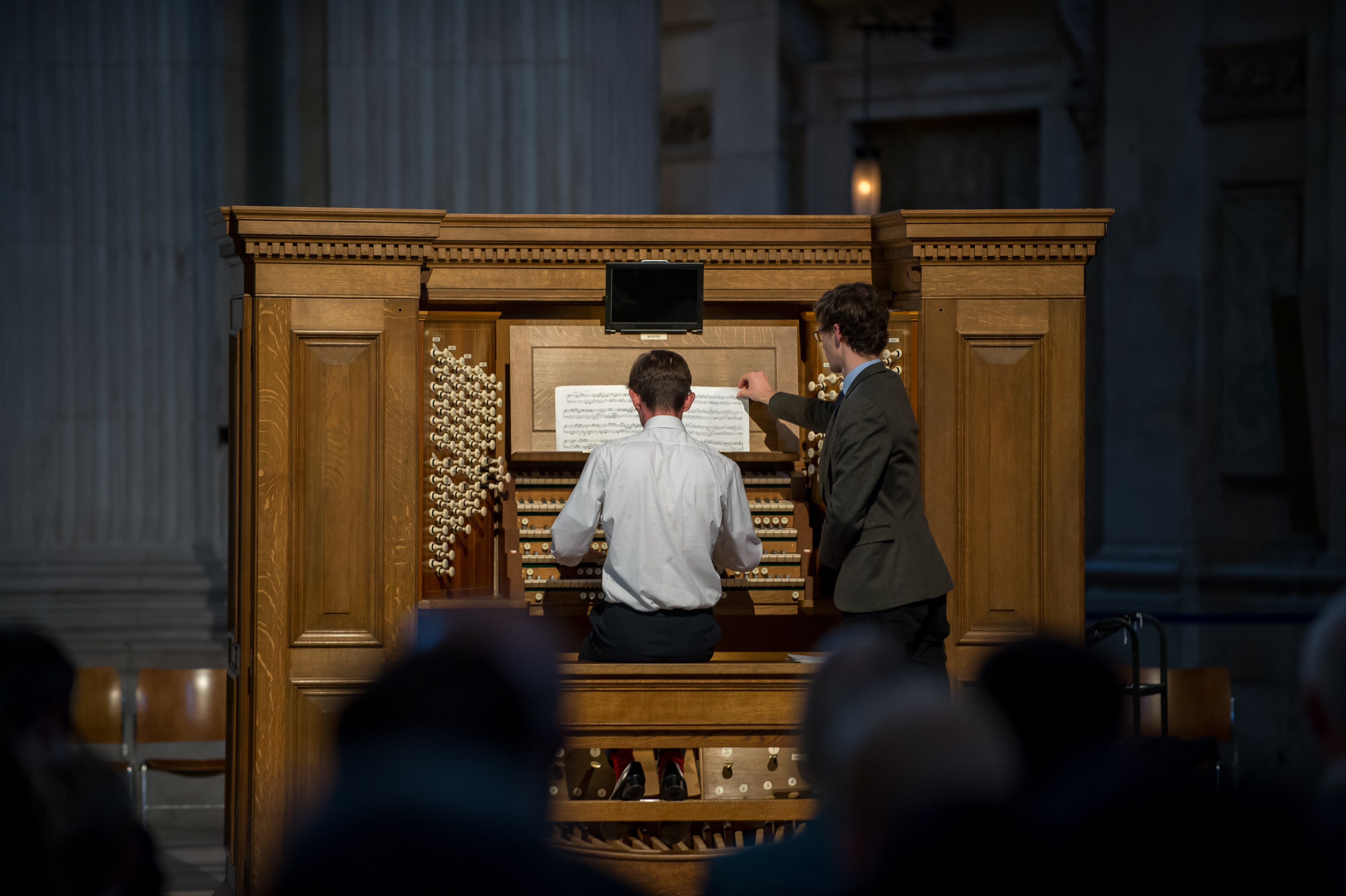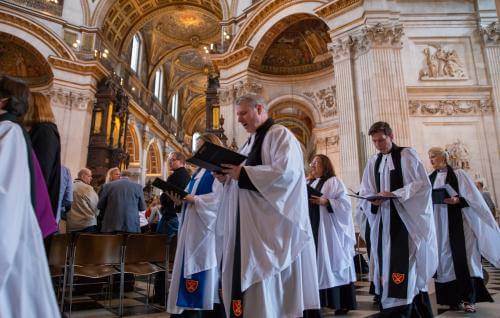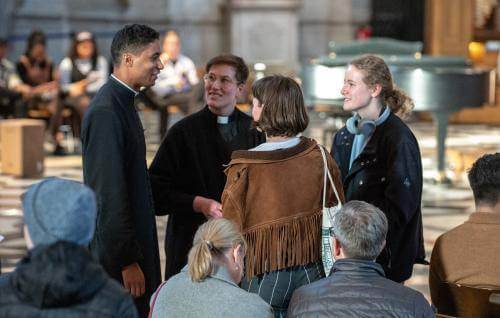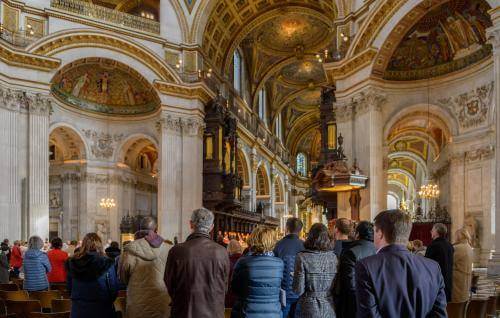Worship with us

Worship with us
As a working church, worship is at the heart of St Paul’s Cathedral. Day by day, throughout the year, we come together to pray, sing, be still, and reflect as many have done in this place for generations. Each day begins and ends with prayer, as all that we do is offered to God.
Many of our services are enriched by music – from our world-class Cathedral Choir, to our outstanding organists, who offer a vast repertoire of music for all seasons and occasions. Our services give those who come through our doors an opportunity to experience the essence of St Paul’s.
You are welcome to join us, regardless of what you believe, and we have guidance online for those attending for the first time. All of our regular services are free of charge, and worshippers can also come to pray in St Dunstan's chapel without paying for entry. However, some of our special services and concerts are ticketed – see our calendar below for full details.
Upcoming services

Our service schedule
Our calendar shows all of our upcoming daily and special services, but our downloadable service schedule provides information about the music at each of our services.







